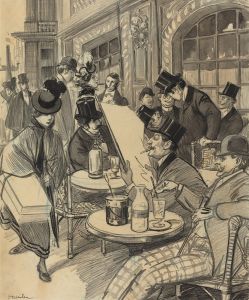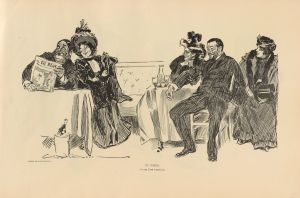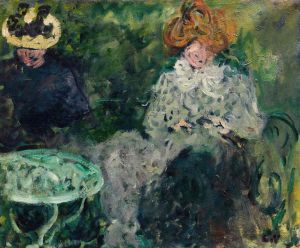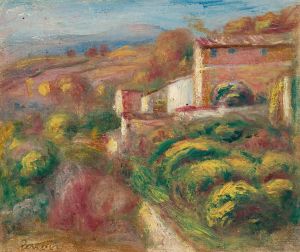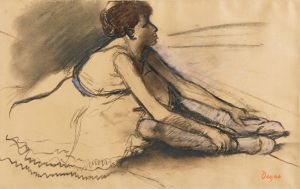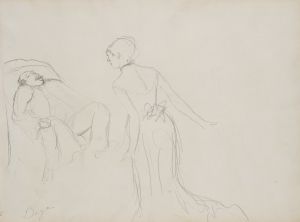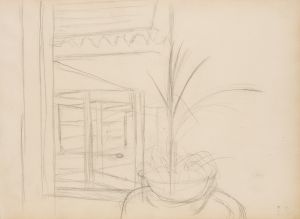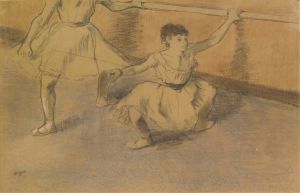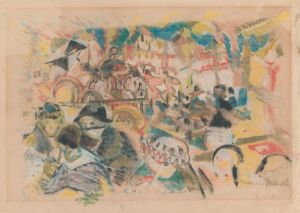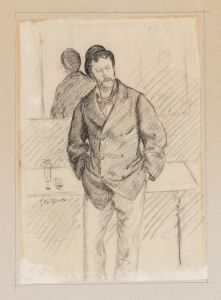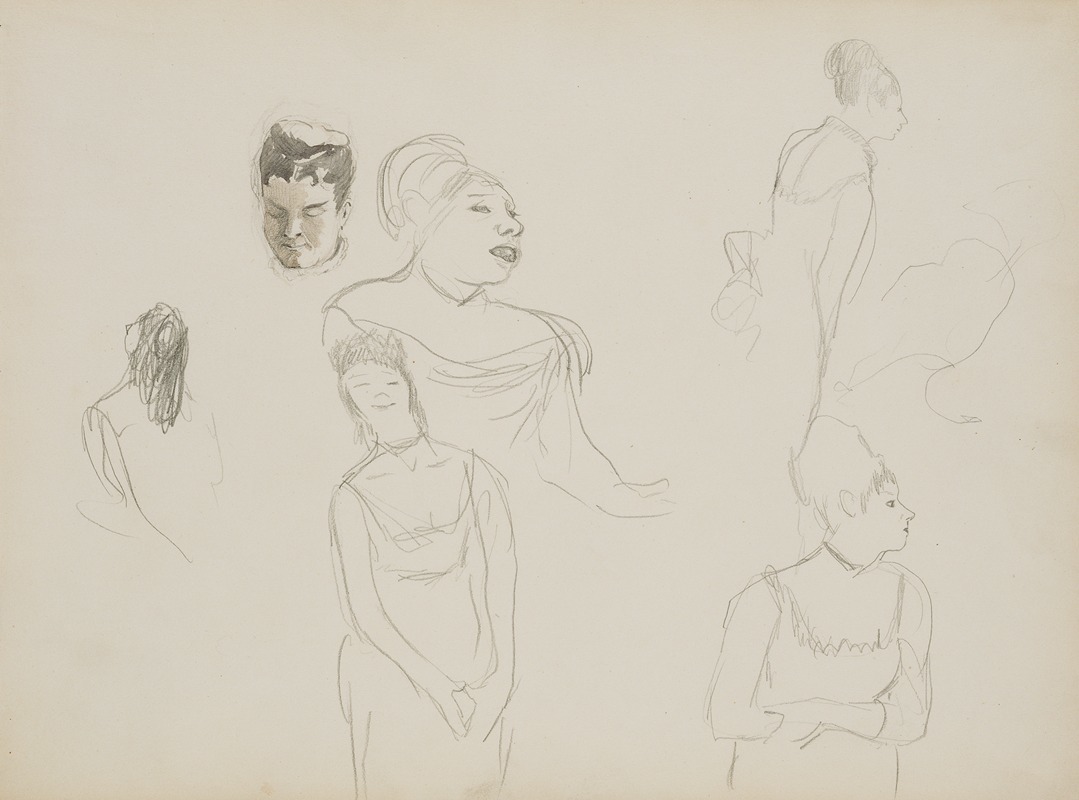
Sketches of Café Singers
A hand-painted replica of Edgar Degas’s masterpiece Sketches of Café Singers, meticulously crafted by professional artists to capture the true essence of the original. Each piece is created with museum-quality canvas and rare mineral pigments, carefully painted by experienced artists with delicate brushstrokes and rich, layered colors to perfectly recreate the texture of the original artwork. Unlike machine-printed reproductions, this hand-painted version brings the painting to life, infused with the artist’s emotions and skill in every stroke. Whether for personal collection or home decoration, it instantly elevates the artistic atmosphere of any space.
"Sketches of Café Singers" is a work by the French artist Edgar Degas, known for his innovative approach to capturing modern life in 19th-century Paris. This piece is a study or preparatory work that reflects Degas's interest in the vibrant café-concert culture of his time, where singers and performers entertained audiences in informal, lively settings. While Degas is most renowned for his depictions of ballet dancers, he also explored other facets of Parisian entertainment, including the world of café singers.
The artwork is executed in a sketch-like manner, showcasing Degas's mastery of line and form. It is believed to have been created in the late 19th century, during a period when Degas frequently experimented with different media and techniques to capture fleeting moments and the essence of his subjects. The piece likely served as a study for a larger composition or as part of his exploration of the theme of performers and their environments.
Degas's interest in café singers aligns with his broader artistic focus on the intersection of public and private life, as well as his fascination with the human figure in motion. His works often reveal a keen observational eye, capturing not only the physicality of his subjects but also the atmosphere and mood of the scenes he depicted. In "Sketches of Café Singers," this is evident in the dynamic poses and gestures of the figures, which suggest movement and the lively energy of a performance.
The medium and dimensions of "Sketches of Café Singers" are not definitively documented, as it is one of many studies and sketches Degas produced throughout his career. His preferred materials for such works often included charcoal, pastel, and pencil, which allowed him to work quickly and fluidly. These materials also enabled him to experiment with composition and form before committing to a final piece.
As with many of Degas's works, "Sketches of Café Singers" reflects his deep engagement with contemporary Parisian culture and his innovative approach to art-making. By focusing on everyday scenes and the lives of performers, Degas contributed to the broader Impressionist movement's goal of capturing modern life in all its complexity and immediacy. However, unlike some of his contemporaries, Degas often worked in his studio, relying on memory, sketches, and studies to inform his finished pieces.
Further details about the provenance or current location of "Sketches of Café Singers" are not widely available, and it remains one of the many examples of Degas's prolific output as an artist deeply attuned to the rhythms and textures of his time.





